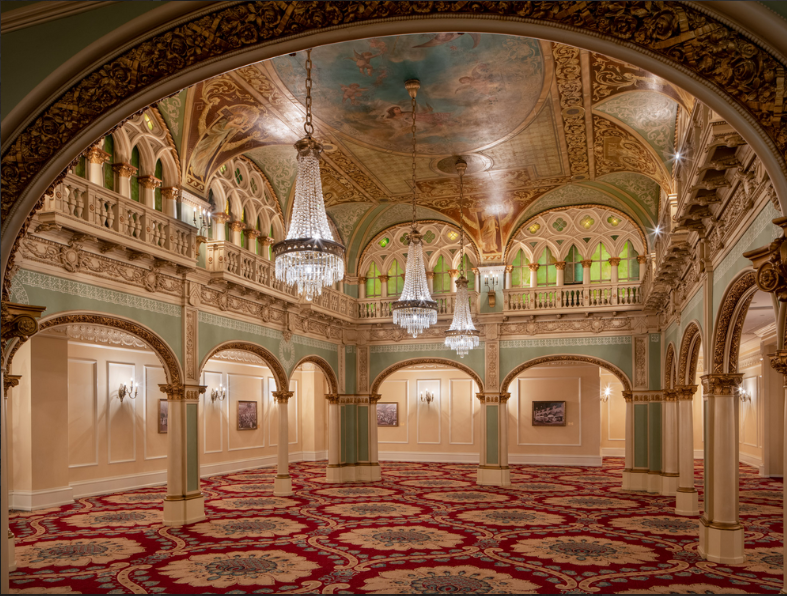Click ">" to open the menu |
annual meeting
2024 Northwest Archivists Annual Meeting — Spokane, WA
May 8 - 10, 2024
Note: This page was updated and sub pages were removed in September 2025.
Seeking Balance: Sustainability and Adaptation
Northwest Archivists’ 2024 Annual Meeting will be held in Spokane, Washington, from May 8-10. In 2024, the Spokane community will observe and celebrate the 50th anniversary of Expo ‘74, Spokane’s World’s Fair, the first such exposition to focus on the environment. Taking inspiration from the Fair, our theme is Seeking Balance: Sustainability and Adaptation. This theme invites consideration of how issues related to the environment, sustainability and adaptation intersect with archives and allied professions. While we seek balance, we are frequently required to adapt and react to changing circumstances. We must also be responsive to the changing climate, to different resource allocations, to new staffing models, and much, much more.
Conference Schedule: Conference at a Glance | Full Conference Program
NWA Archival Screening Night: call for submissions (Deadline April 12)
Conference Location:
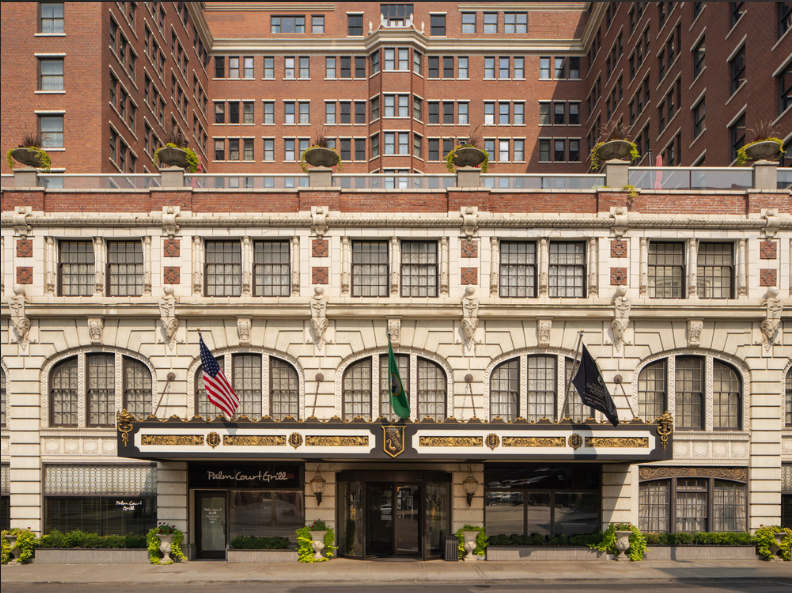
10 South Post Street
Spokane, Washington, 99201
NWA Conference Room Rate Details
Conference date no longer available as of April 10.
Tours
May 8 , 2024
Washington State Archives, Digital Archives and Eastern Regional Branch Open House
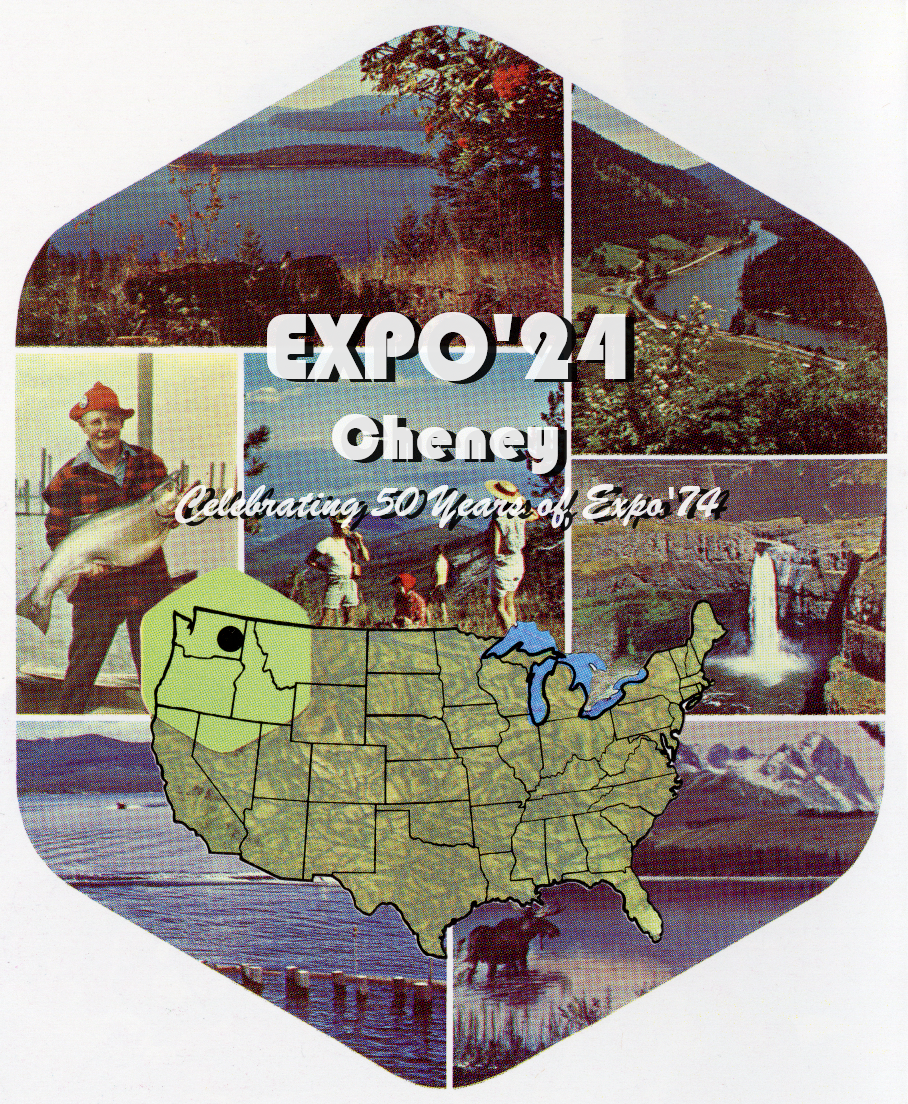
Where: Eastern Regional Branch - Washington State Archives, 960 Washington Street, Cheney, Washington, 99004
When: Wednesday, May 8 at 9:00 AM - Noon
The Eastern Branch of the Washington State Archives, in Cheney (20 minutes south of Spokane) will be hosting an open house on Wednesday, May 8th from 9:00 am to Noon. We are located at 960 Washington Street in Cheney. There is an exhibit of photographs documenting the site of Expo 74 before, during, and after construction. There will also be tours of the facility, which houses county government materials for the easternmost side of the state, as well as military service records, a collection of historical computers, and the Digital Archives for the entire state. The tour will be offered multiple times during the open house, so feel free to stop by anytime.
|
Conference Workshops Pre-Conference Workshop Wednesday, May 8, 2024 Email Archiving Instructors: Christopher Prom and Ruby Martinez Wednesday, May 8 - 9:00 AM - 5:00 PM Registration and workshop details now available through the SAA website. Registration for this workshop is separate from conference registration. The registration fee is $239 for SAA members registering by April 8. Enrollment is limited to 35 participants. Workshop must have at least 15 confirmed attendees by April 8 to avoid cancellation. To enable future scholarship and research, libraries and archives must capture, preserve, and provide access to the evidence that email holds. Yet email’s complexity has prevented many archives from approaching this work in a systematic way. Email is a complicated interaction of technical subsystems for composition, transport, viewing, and storage. And archivists must build trust with donors that are turning over these potentially sensitive accounts, capture the collections from many locations, process the multitude of email records, meet privacy and legal considerations, preserve messages and attachments, and facilitate access. This one-day course is aimed at helping participants develop a programmatic means to understand, acquire, preserve, and provide access to born-digital correspondence. AV 102 Wednesday, May 8 - 9:00 AM - Noon Registration will be available through the conference registration site. Enrollment is limited to 25 participants Navigating the Intersection: Diversity, Equity and Inclusion in Cultural Institutions Wednesday, May 8 - 1:00 PM - 2:30 PM Instructor: Talisa Lavarry This workshop is sponsored by Relicura. Registration will be available through the conference registration site. Enrollment is limited to 30 participants. Zine Lounge Wednesday, May 8 - 3:00 PM - 4:00 PM Registration will be available through the conference registration site. Enrollment is limited to 40 participants. |
Conference Sponsors
- Relicura LLC (Gold Level Sponsorship)
- MIPoPS (Silver Level Sponsorship)
- Atlas Systems (Bronze level Sponsorship)
- Hollinger Metal Edge, Inc. (Bronze Level Sponsorship)
- AM Quartex (Exhibitor)
- ArcaSearch LLC (Exhibitor)
- ArchivesSpace (Exhibitor)
- Mnemosyne Archives (Exhibitor)
- National Endowment for the Humanities (Exhibitor)
- San Jose State University (Exhibitor)
- Washington State Genealogical Society (Exhibitor)
- Washington State Library (Exhibitor)
- Gaylord Archival (Virtual Exhibitor)



_3.jpg)
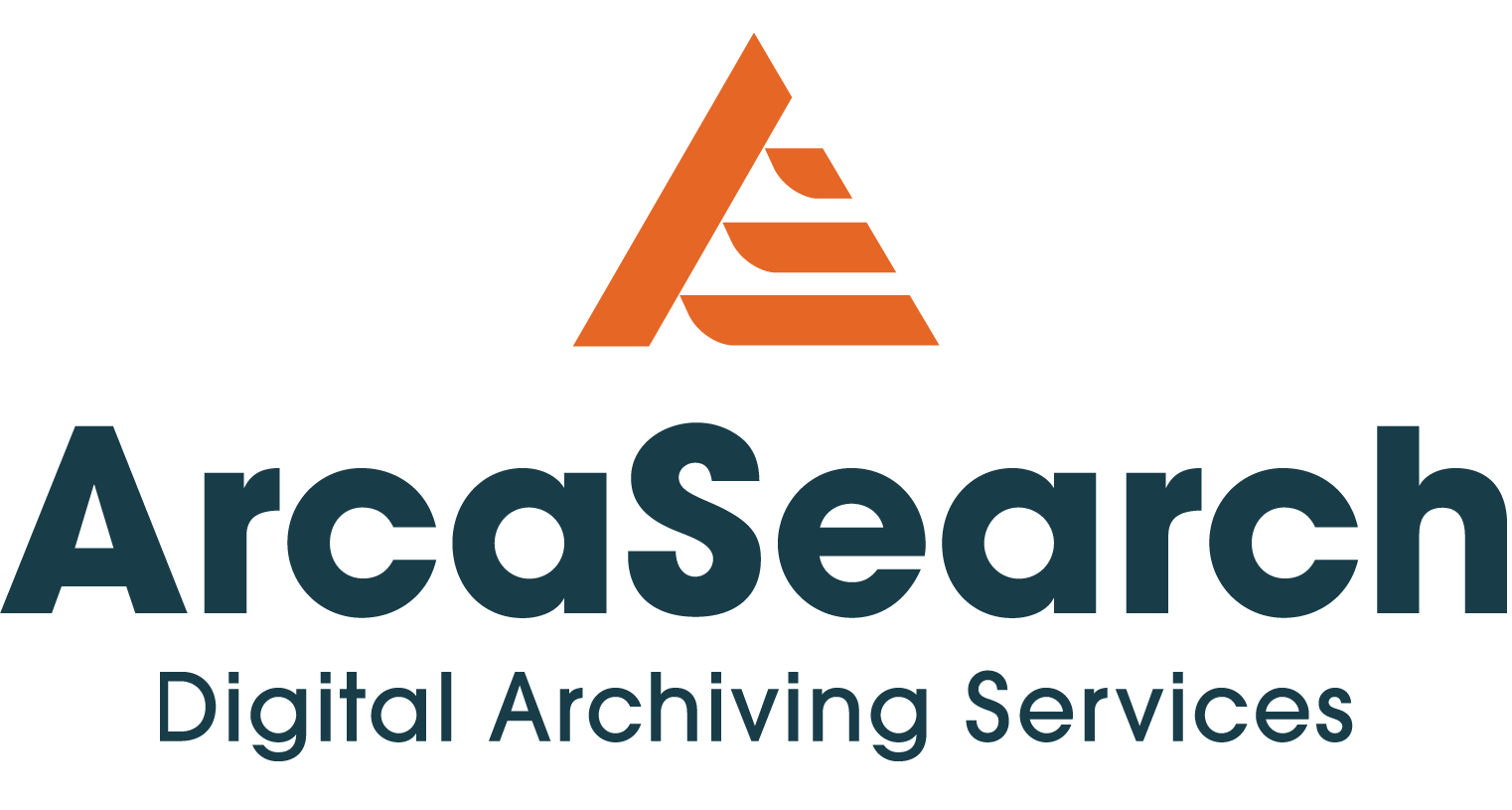
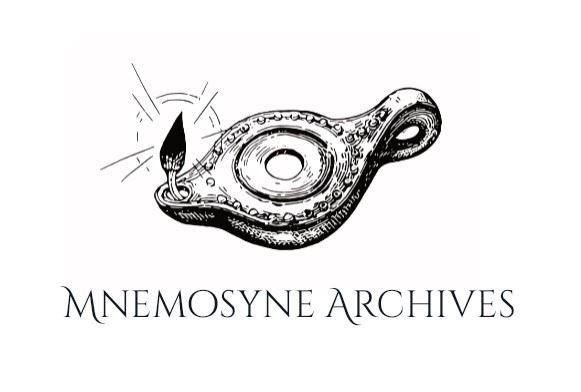
Organizing Committees
Local Arrangements Committee:
- Nancy Bunker (chair)
- Stephanie Plowman
-
Anna Harbine
-
Pam Hedquist
-
Jessica Long
-
Dana Bronson
-
Steve Bingo
Program Committee:
- Terry Badger
- Becky Butler
- River Freemont
- Alisha Graefe
- Anna Harbine (local arrangements)
- Libby Hopfauf
- Heather Mulliner
- Ben Murphy (chair)
- Stephanie Plowman (local arrangements)
- Sara Szobody
-
Jennifer Vanoni
Call For Posters (CLOSED)
The Northwest Archivists 2024 Program Committee welcomes poster proposals in broad support of the Annual Meeting theme Seeking Balance: Sustainability and Adaptation. Deadline for proposals is March 1, 2024. Notification will be made the week of March 11. Submit your proposal using 2024 Poster Proposal Form.
More information can be found on our News and Announcements post.
Call For Proposals (CLOSED)
See the full Call for Proposals HERE
Fill out your submissions HERE
Session Proposals
The Program Committee is seeking Session Proposals related to all aspects of archival practice, theory or research that is broadly related to the theme. Any and all ideas are welcome! We especially invite those in allied professions as well as graduate and undergraduate students to participate.
Proposals might focus on:
- Collections or research related to conservation, natural resources, waterways, forestry, agriculture, natural disasters, environmental justice or any other issue related to the environment.
- Sustainability and balance in archival practices: developing sustainable workflows related to processing, digitization, instruction, collection development, donor relations, outreach, records management, reference, public services, disaster preparedness, administration, preservation, accessibility, or any other related topic.
-
- This can include innovations and successful approaches, but also ongoing challenges, unresolved problems, or stories of failure and what was learned from the experience.
- Adaptation: how do we make things work, practically, in our archives as we face change and uncertainty? How have you changed or modified workflows to address new circumstances? How do we make archival processes more environmentally sustainable? What are the impacts of a changing and increasingly unpredictable climate on our work?
- Diversity, Equity and Inclusion: how do topics such as reparative description, addressing legacy biases in collecting practices, or building inclusive workplaces require adaptation? Or, how do issues of diversity, equity and inclusion intersect with any of the above topics?
- Any other proposal that fits within the theme of Seeking Balance: Sustainability and Adaptation. All ideas and creative approaches to the theme are welcome and encouraged!
Session Formats:
In your proposal you will be asked to indicate the format of your session. With the exception of workshops, all sessions will be 60 minutes.
- Panel Session: Two to four speakers present together in a 60 minute session on a common theme. This may include a moderator to steer discussion and/or introduce the speakers and topic. Panelists may choose to engage in questions or dialogue with attendees. Panel Sessions must be submitted as a group. You may use the Panel Collaboration Spreadsheet to find interested folks to partner with on a panel.
- Case Studies: three to five speakers present individually in a 60 minute session on topics focused on recent projects, workflows, ideas, problems, or other topics related to their work. Case Study presentations are shorter than the standard presentation (around 10 minutes for each speaker) and designed to serve as examples of archival theory in practice. Case Studies must be submitted individually and will be combined by the Program Committee.
- Poster Session: One or two presenters design and present a poster based on research related to archives or allied fields. Note: poster submissions will have a later deadline in Spring 2024, with the deadline and submission form to-be-announced.
- Workshop: Consists of a full-day (8 hours), half-day (4 hours), 60 minute or 120 minute session. Two to four workshop leaders will design a lesson plan to teach about an archival topic, practice, program, technology, technique, lesson plan, or software. The lesson plan may be followed by smaller breakout or hands-on sessions to try things out. Note: full or half-day workshops must be pre-conference workshops held on Wednesday, May 8, and there will be a limited number of pre-conference workshop proposals accepted. 120 minute sessions will be held in two consecutive 60 minute slots during the conference.
- Alternative Format. Propose a format that best fits your topic! In your proposal, provide enough information for the evaluators to understand both the format and how the format will support the topic or presentation of the material. Additionally, include how much time the format requires.
Evaluation Criteria
- Is the proposal description clear? (5 points)
- Are the proposal outcomes explicitly stated and achievable in the proposed session? (10 points)
- Will attendees be introduced to a new practice, practical application and/or be encouraged to think in a new way about an issue or topic? (10 points)
- Does the proposal demonstrate that the presenter(s) have the requisite knowledge / experience to present on the topic? (10 points)
- Does the session provide an addition to the field in the areas of diversity, equity and inclusion? (10 points)
- Is the topic relevant to a variety of settings and institutions? (5 points)
- Does the proposal align clearly with the conference theme? (5 points) ● How unique is the proposal compared to other proposals? (5 points)
Deadlines
Session proposals for the NWA 2024 Annual Meeting are due on Friday, December 8 Friday December 15 (Extended date) by 11:59pm Pacific Time. Acceptances will be communicated to presenters in January 2024. Submission Form.
Poster proposals will be due at a to-be-announced date in Spring 2024.
If you have any questions, email Program Committee chair Ben Murphy: murphybp@uoregon.edu
